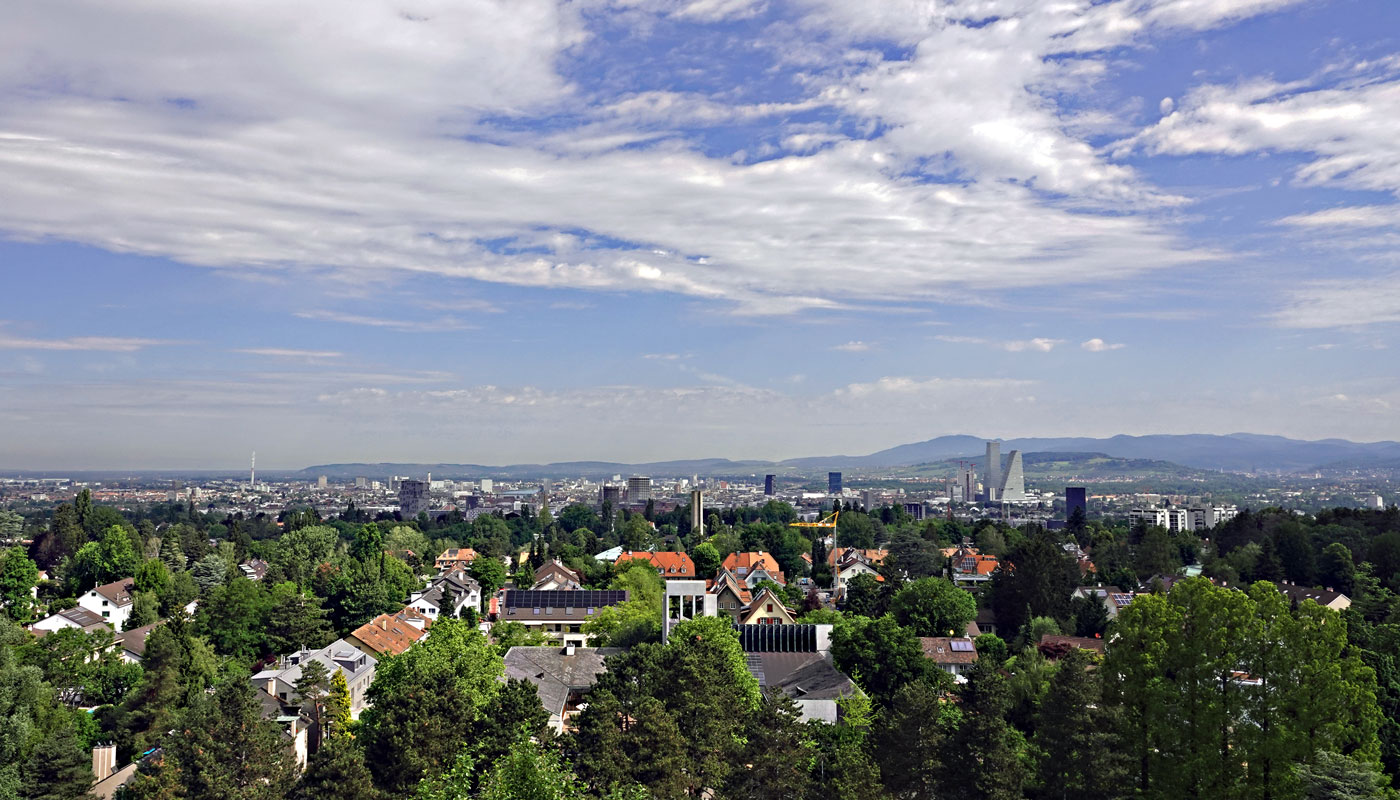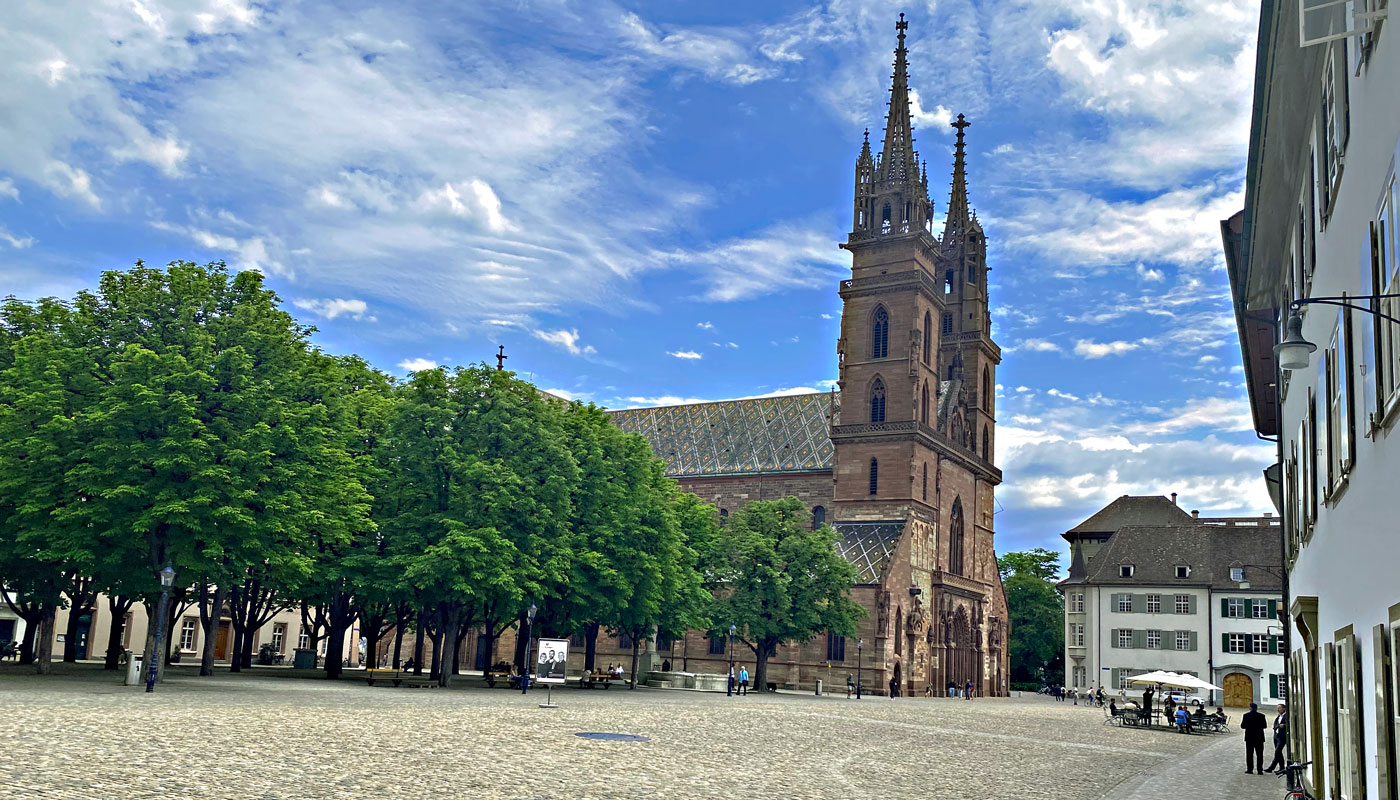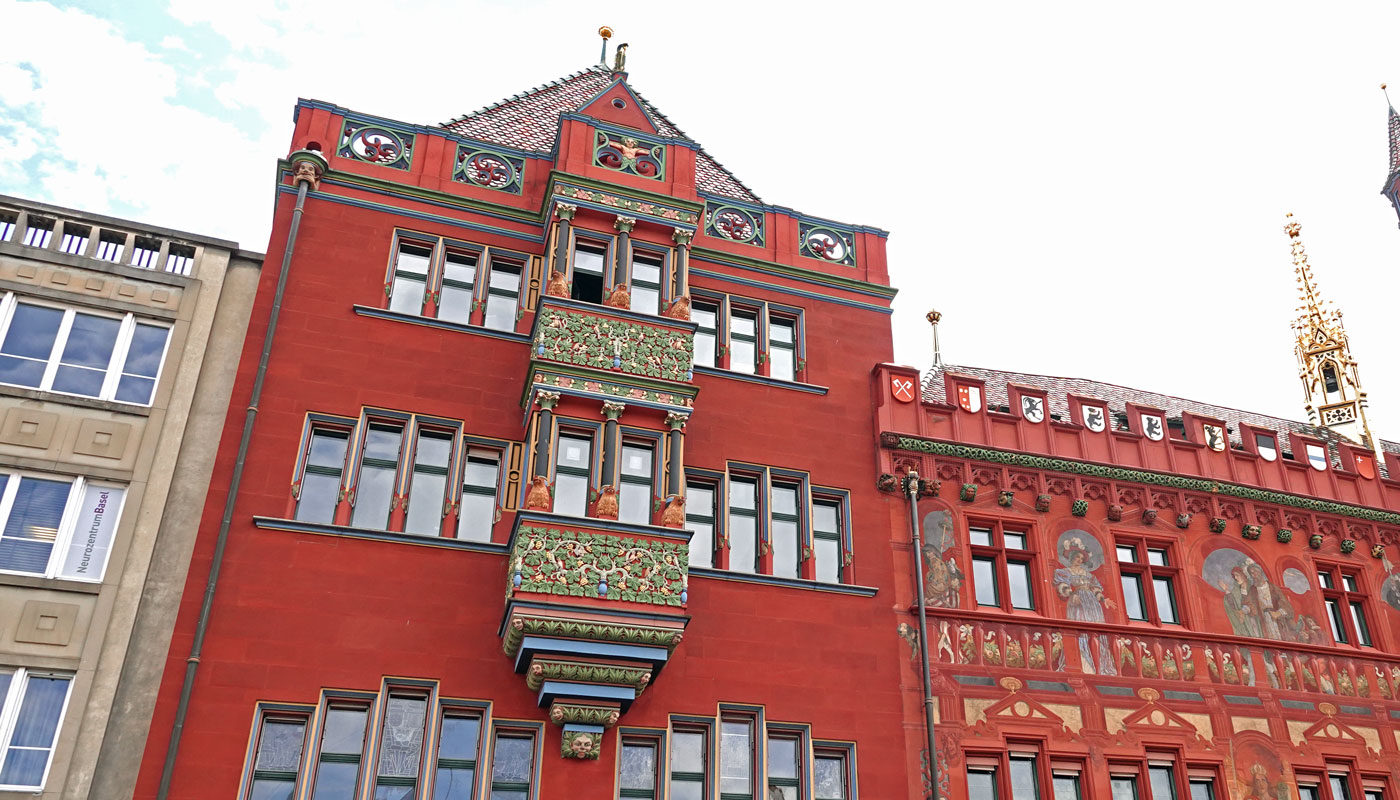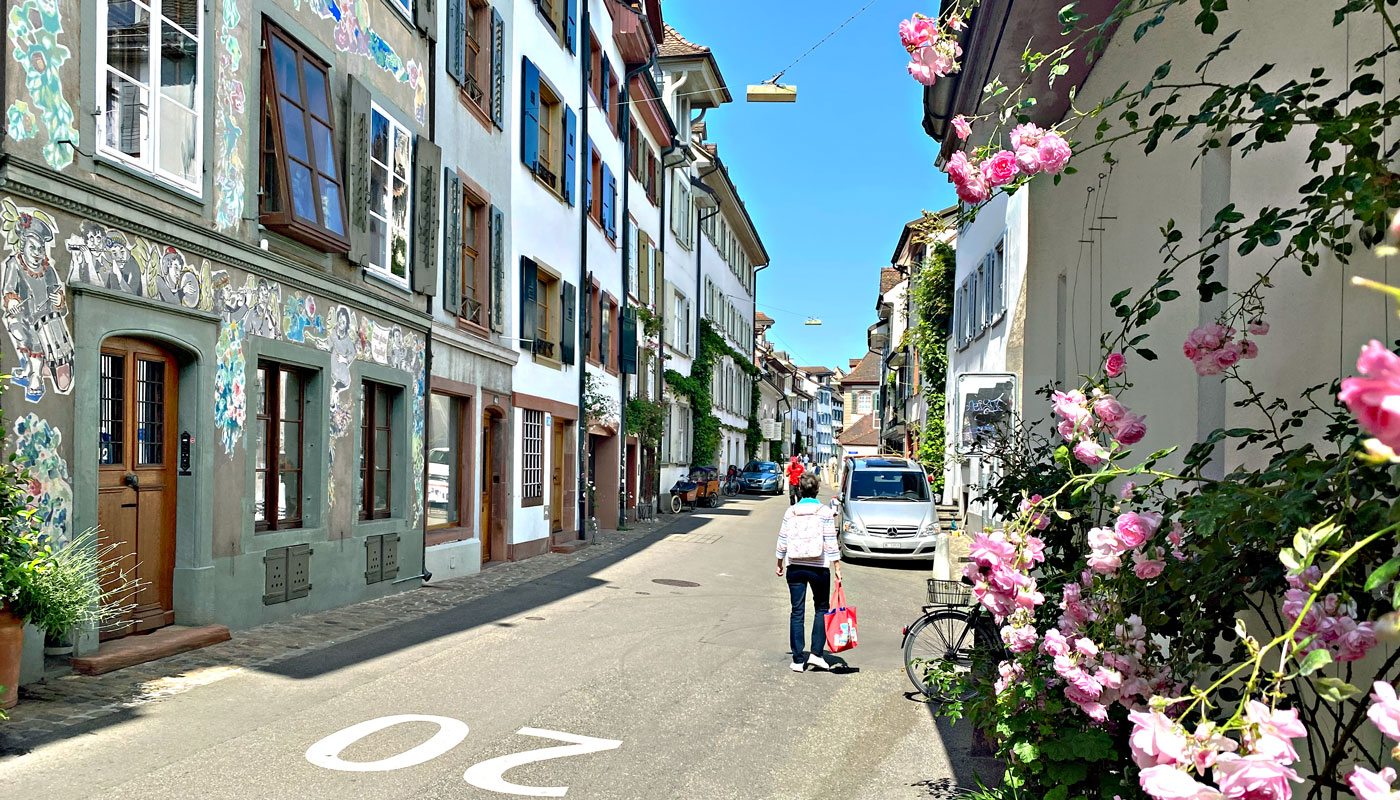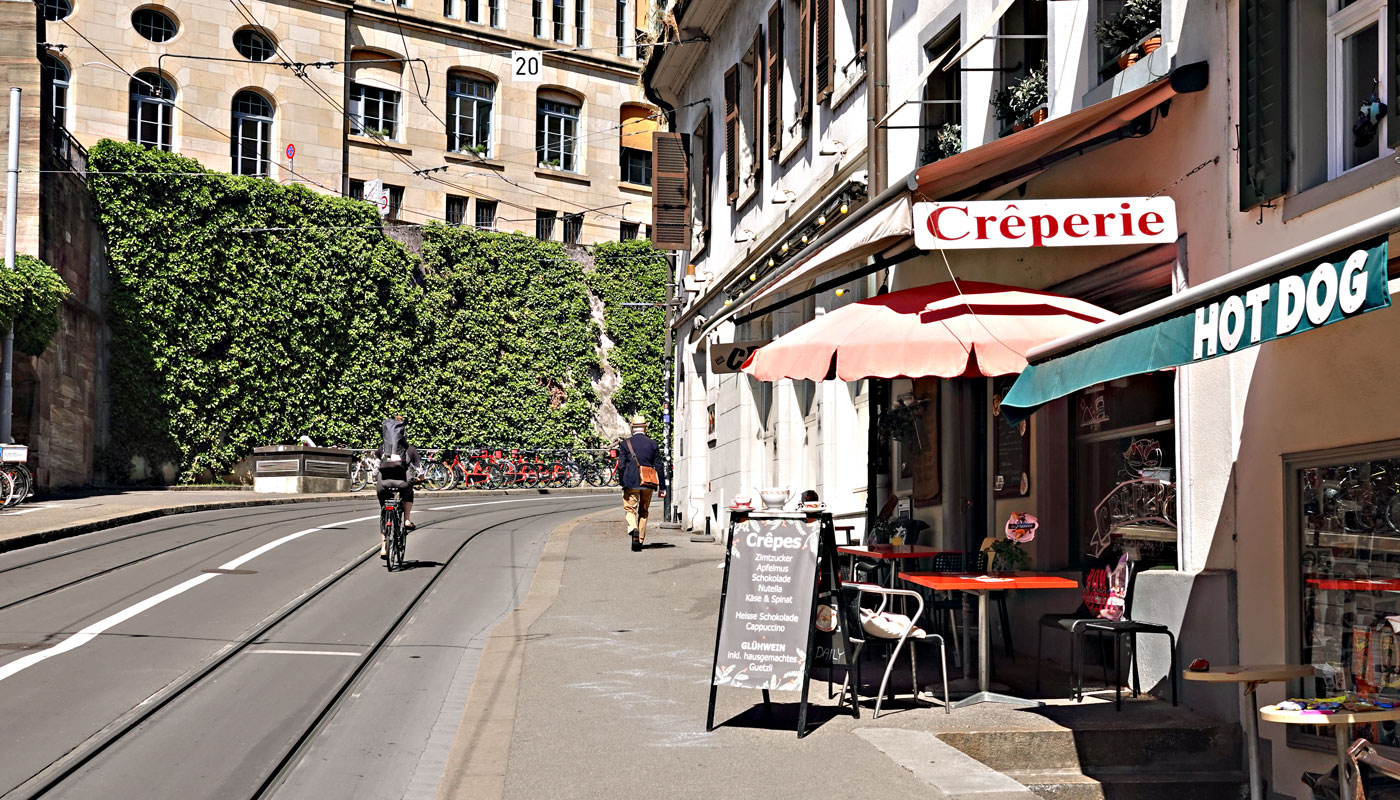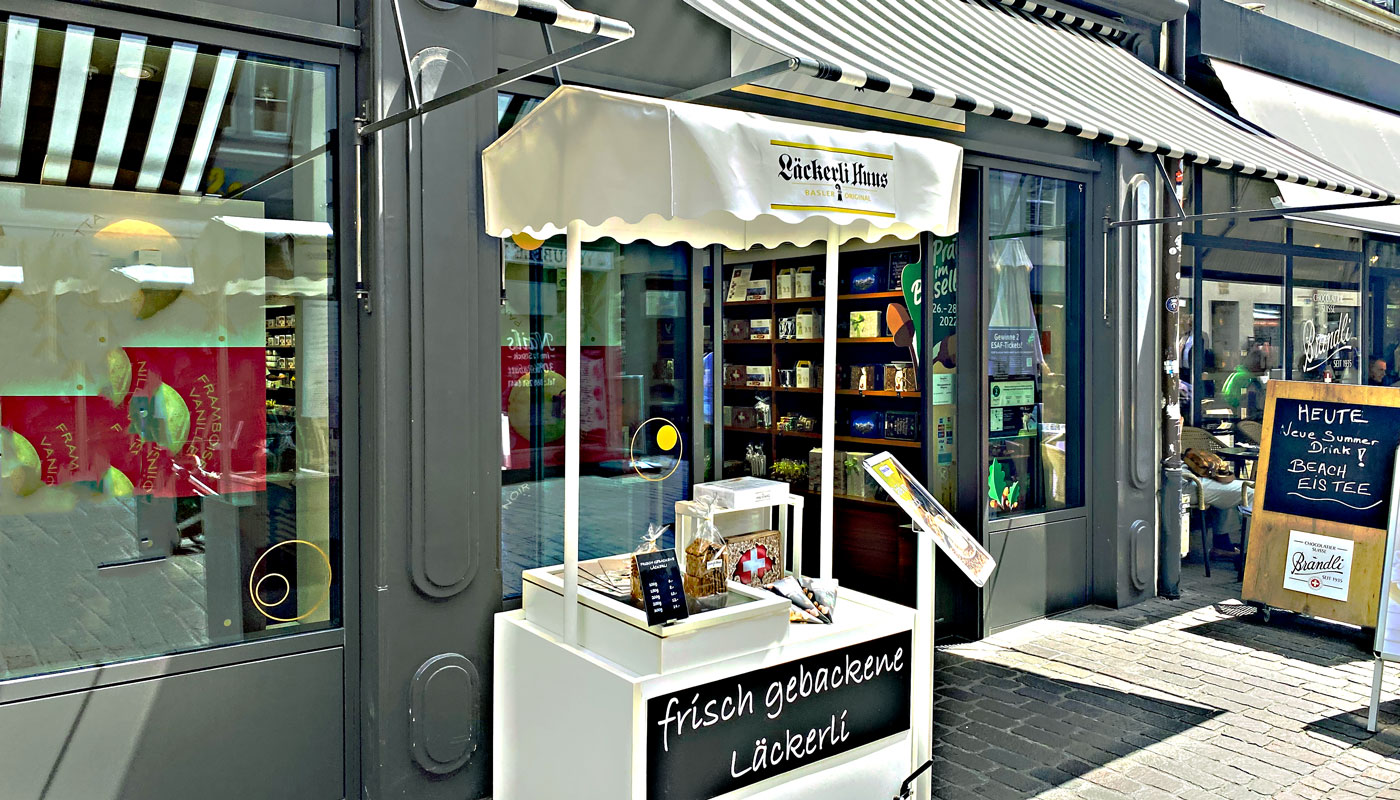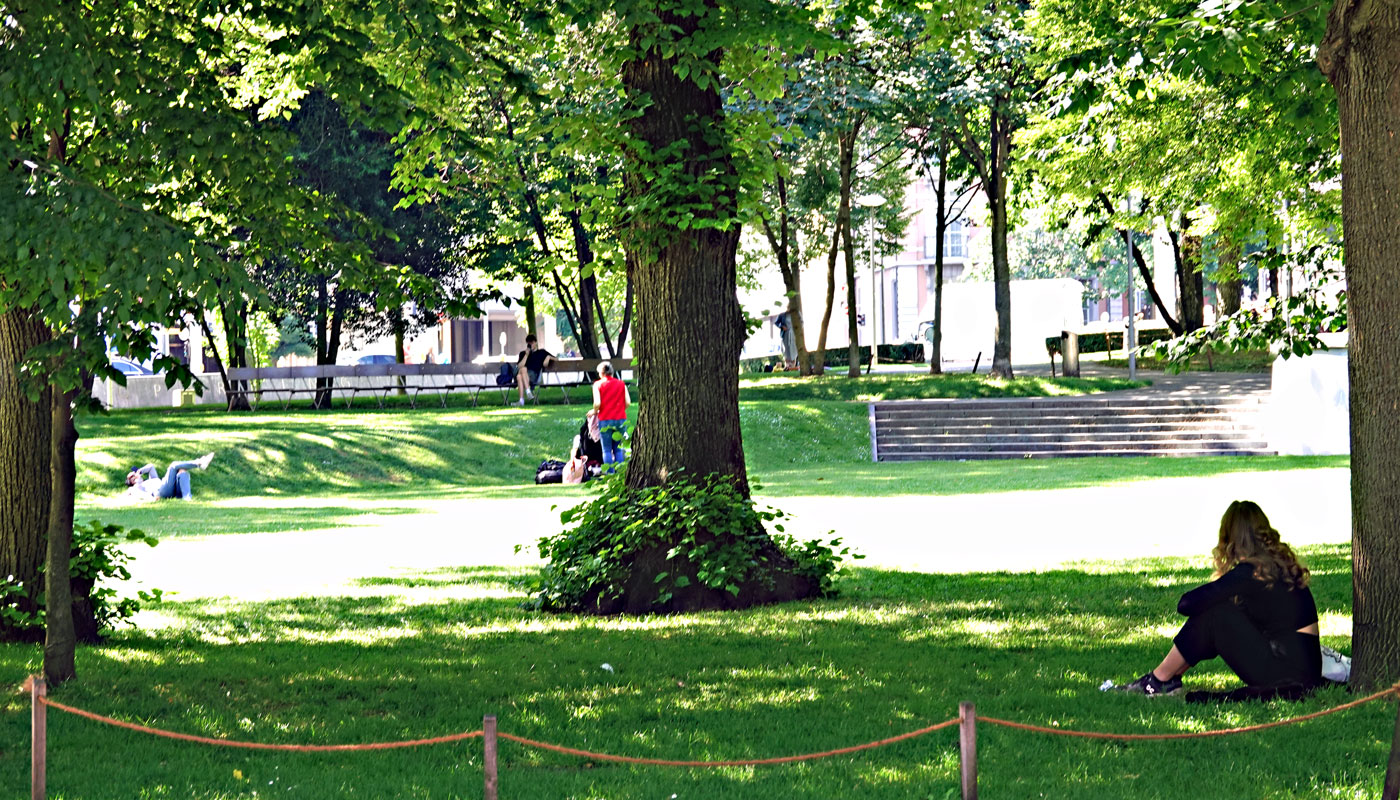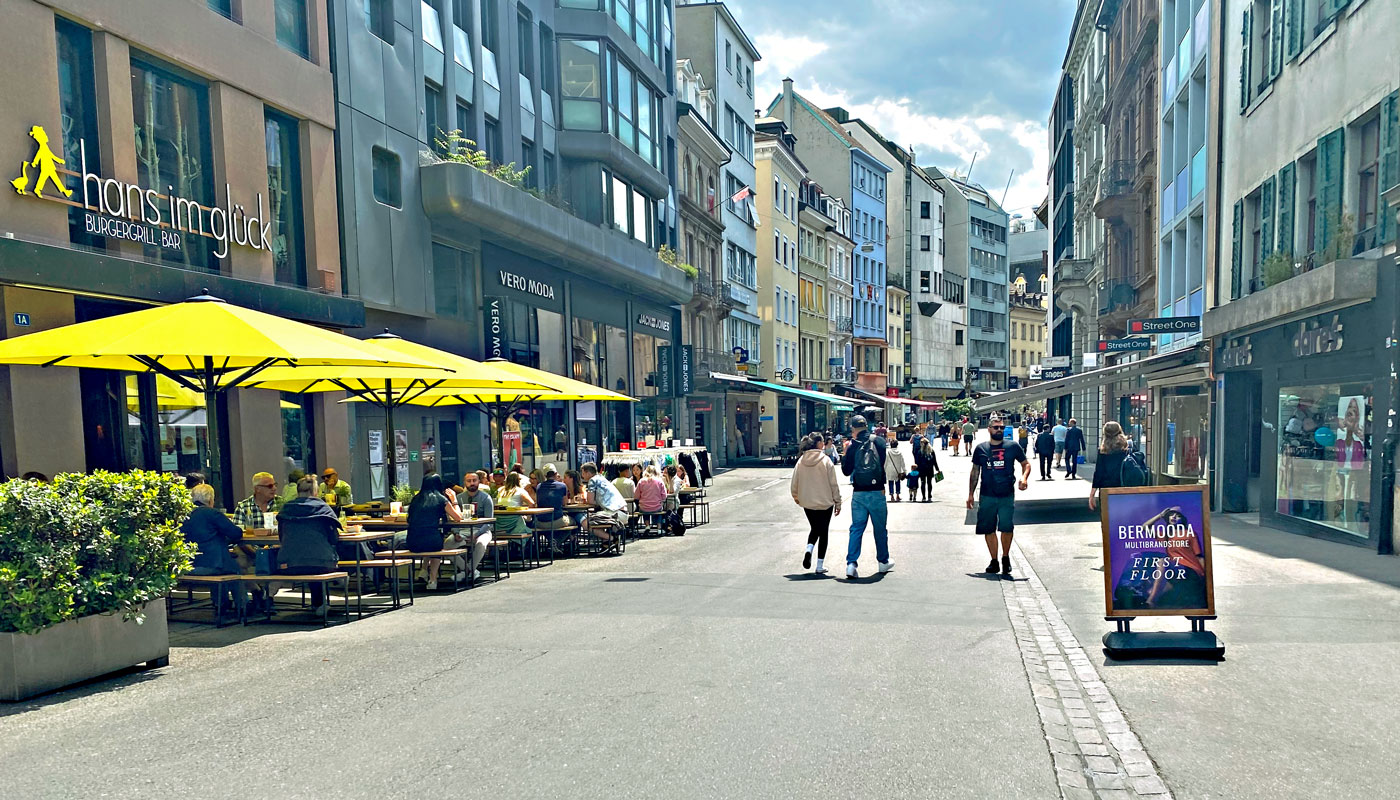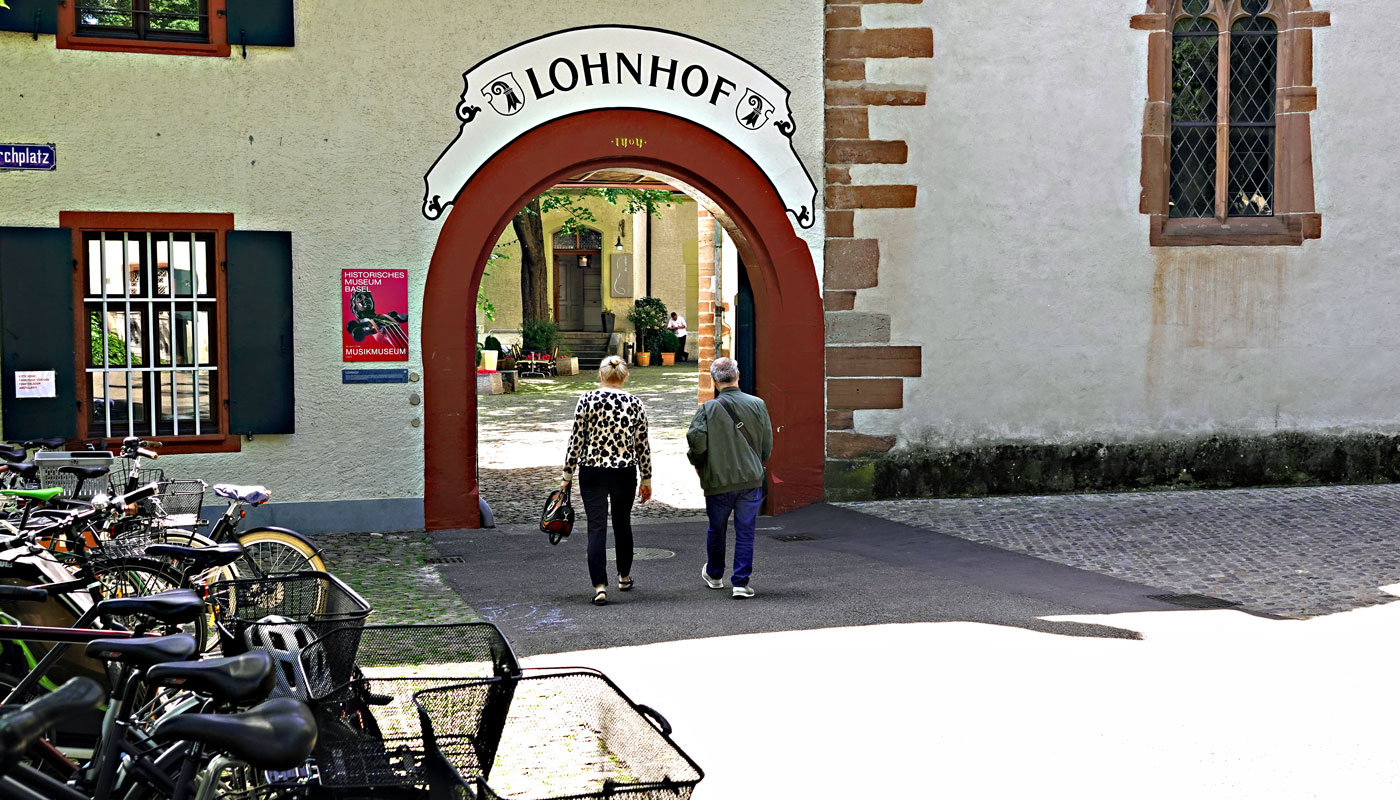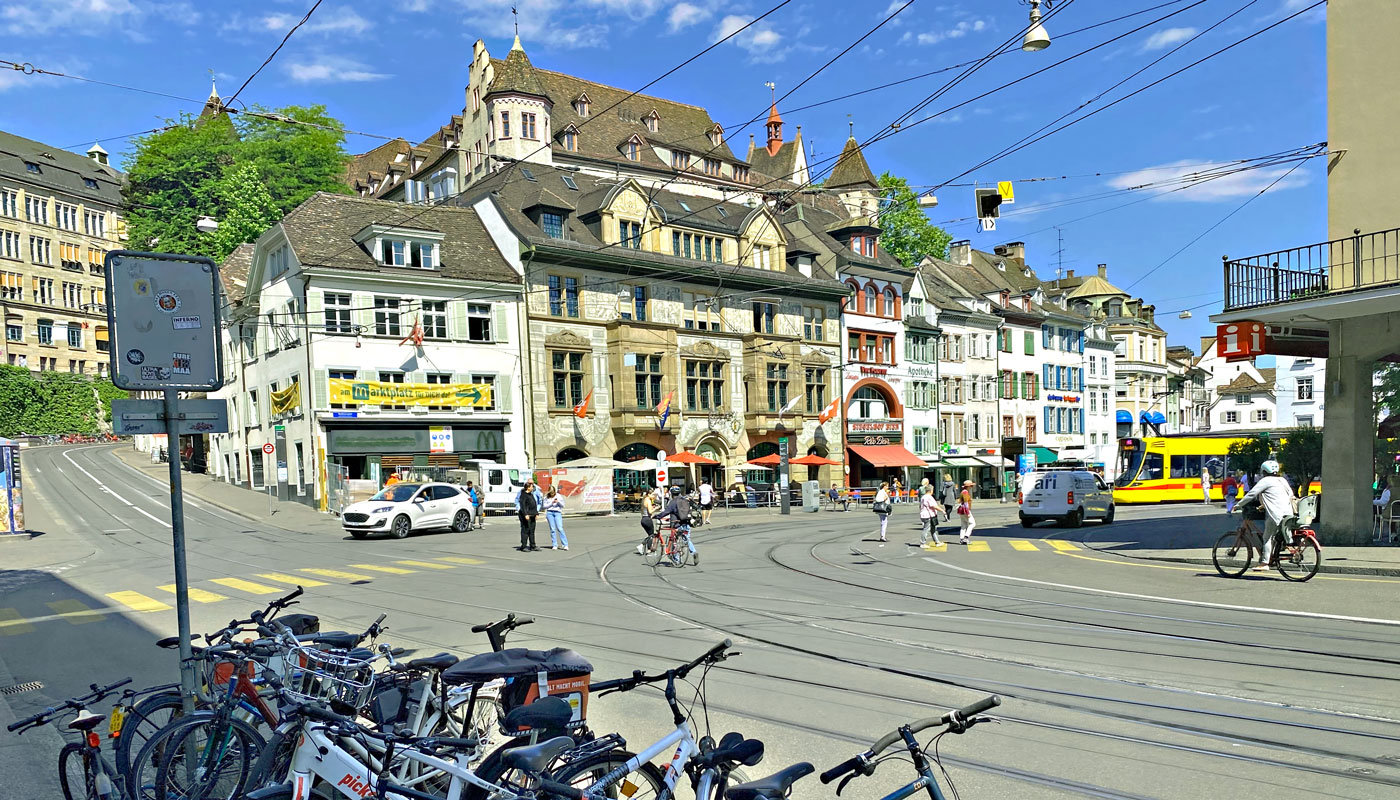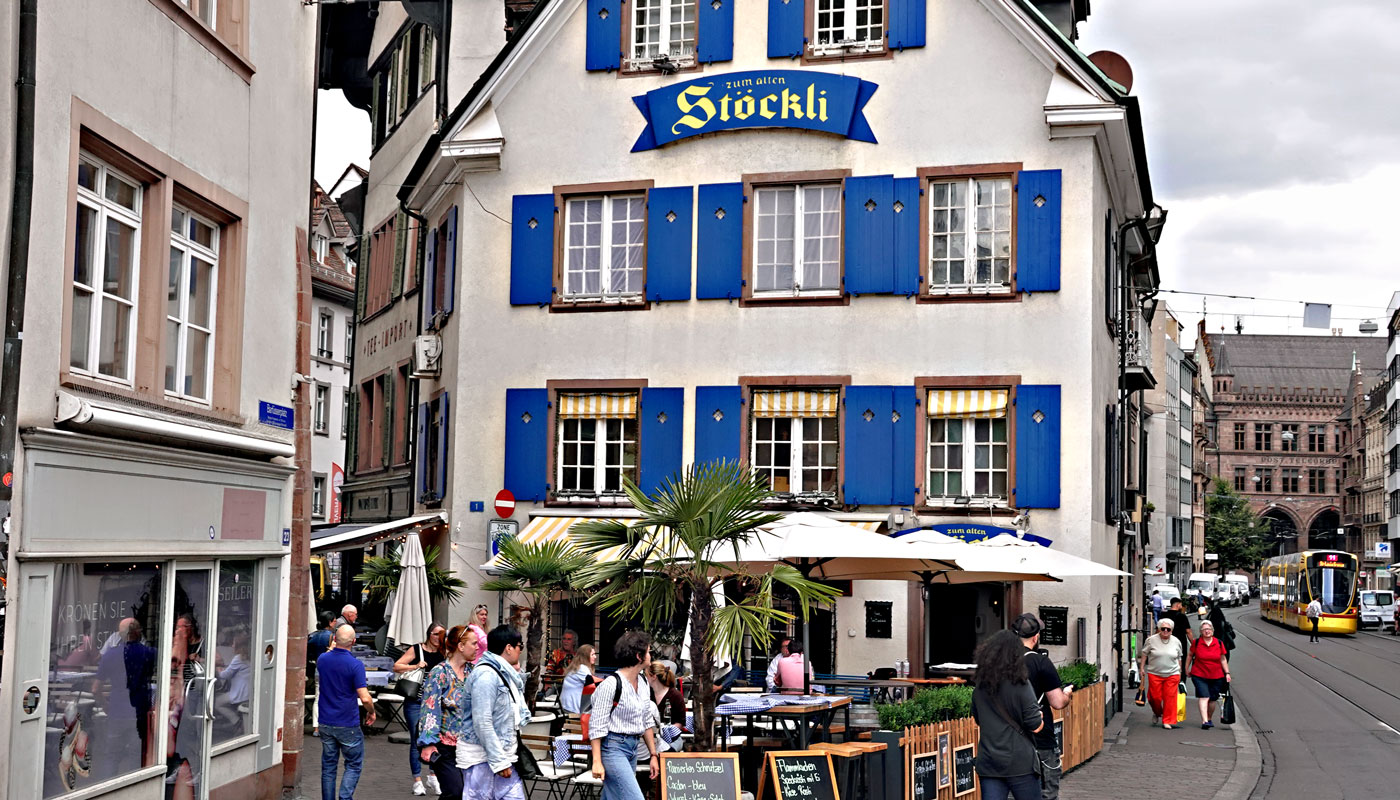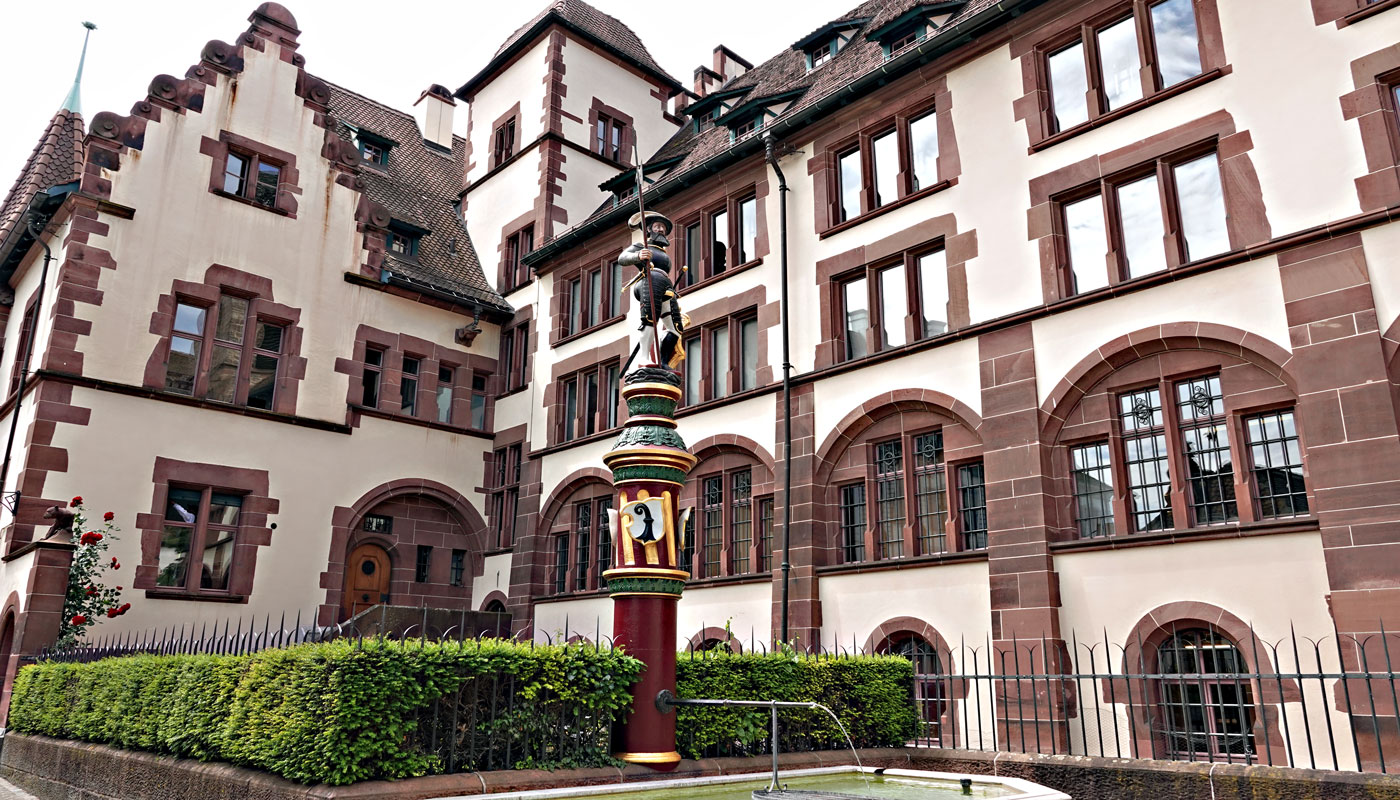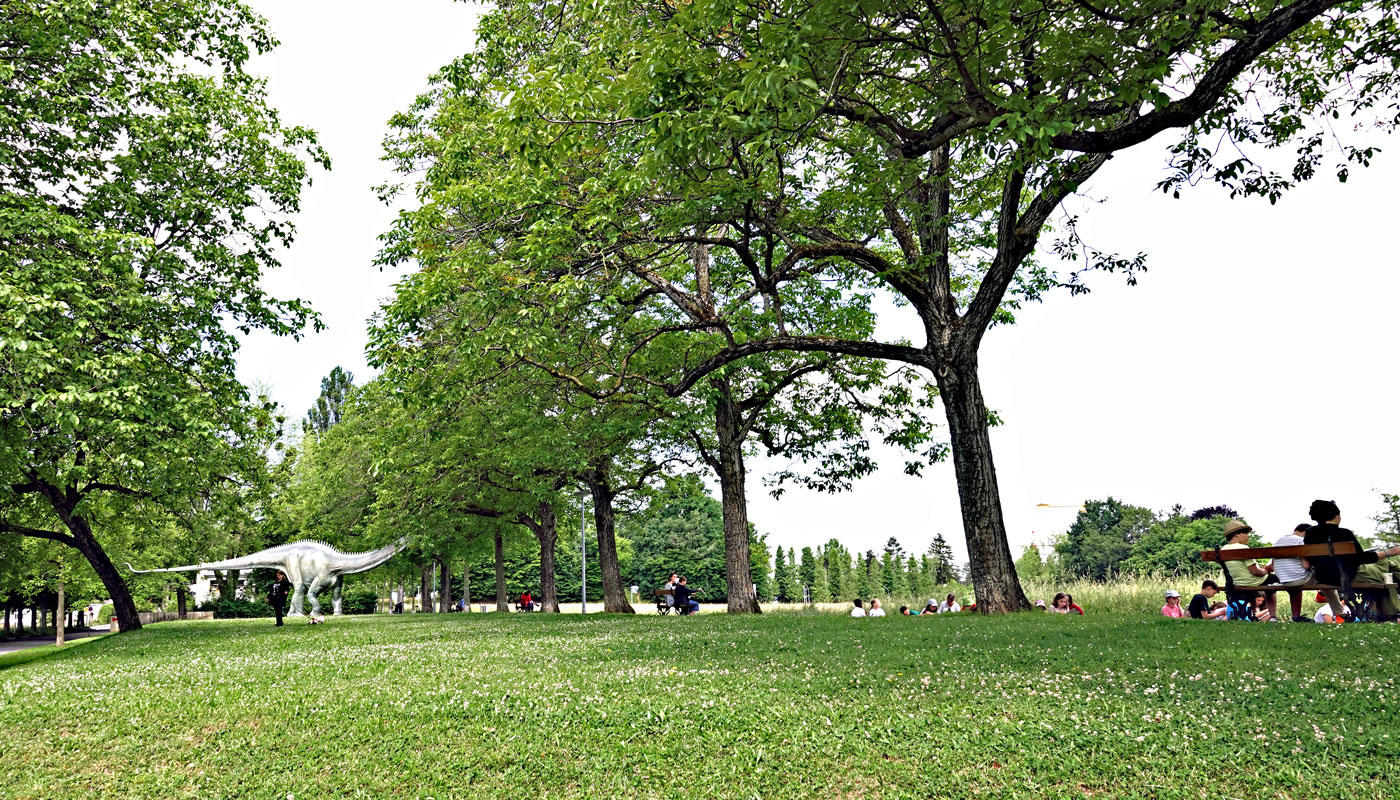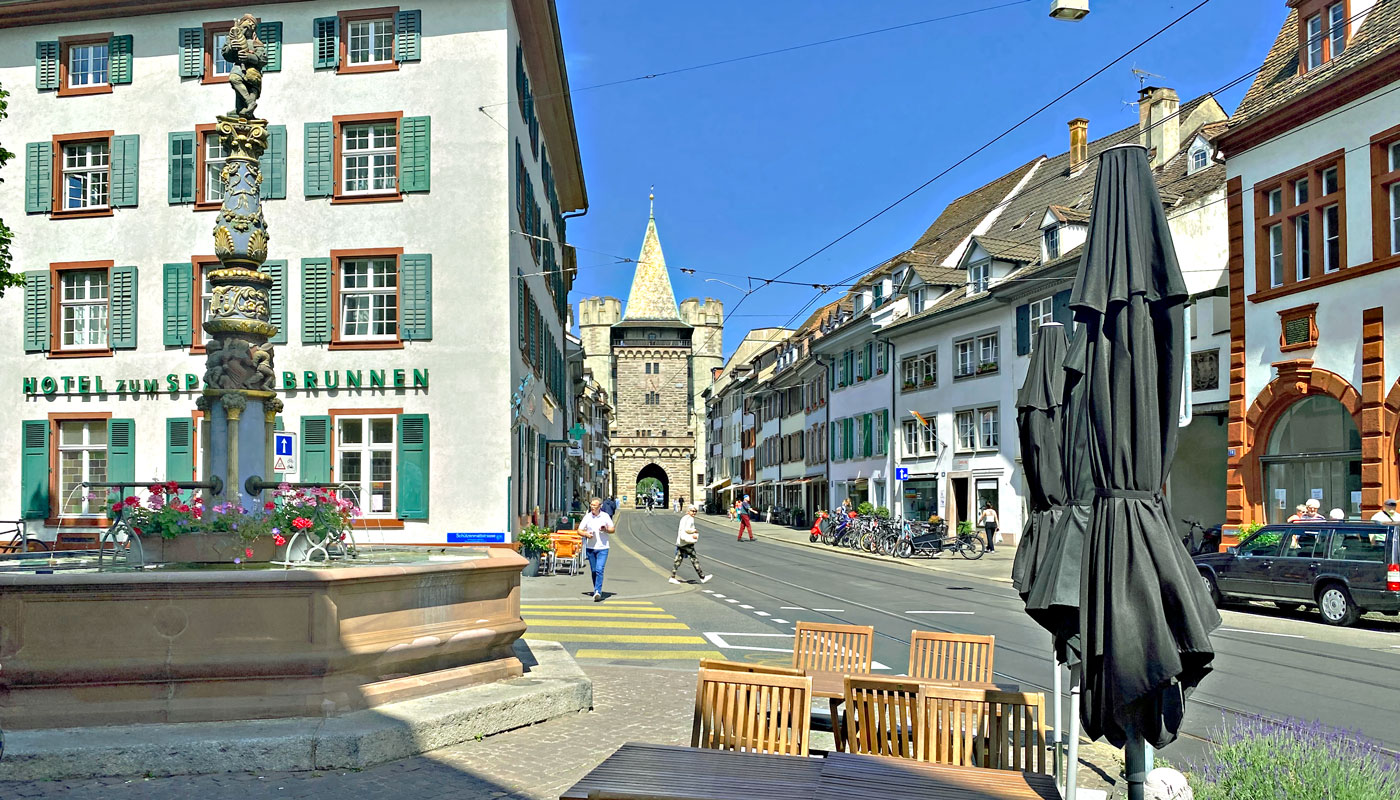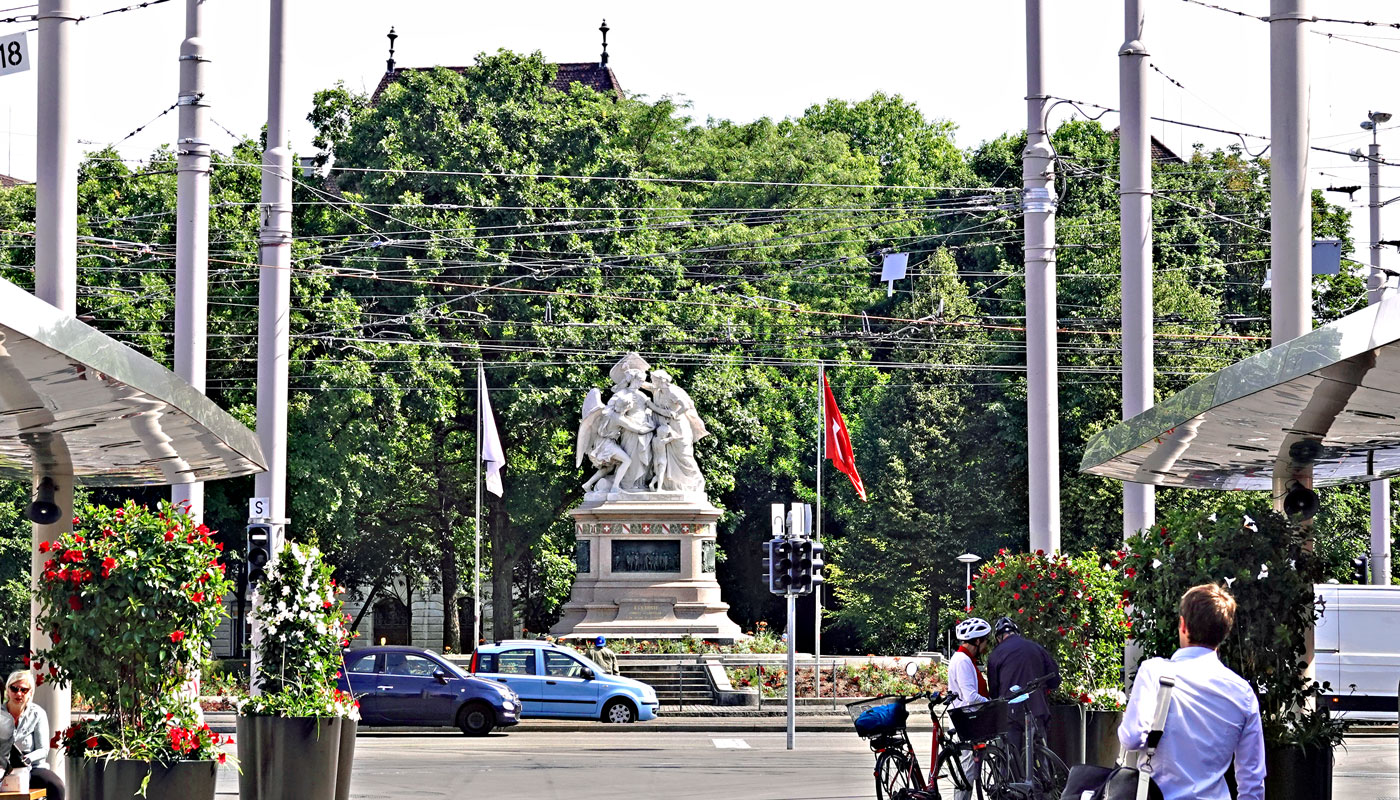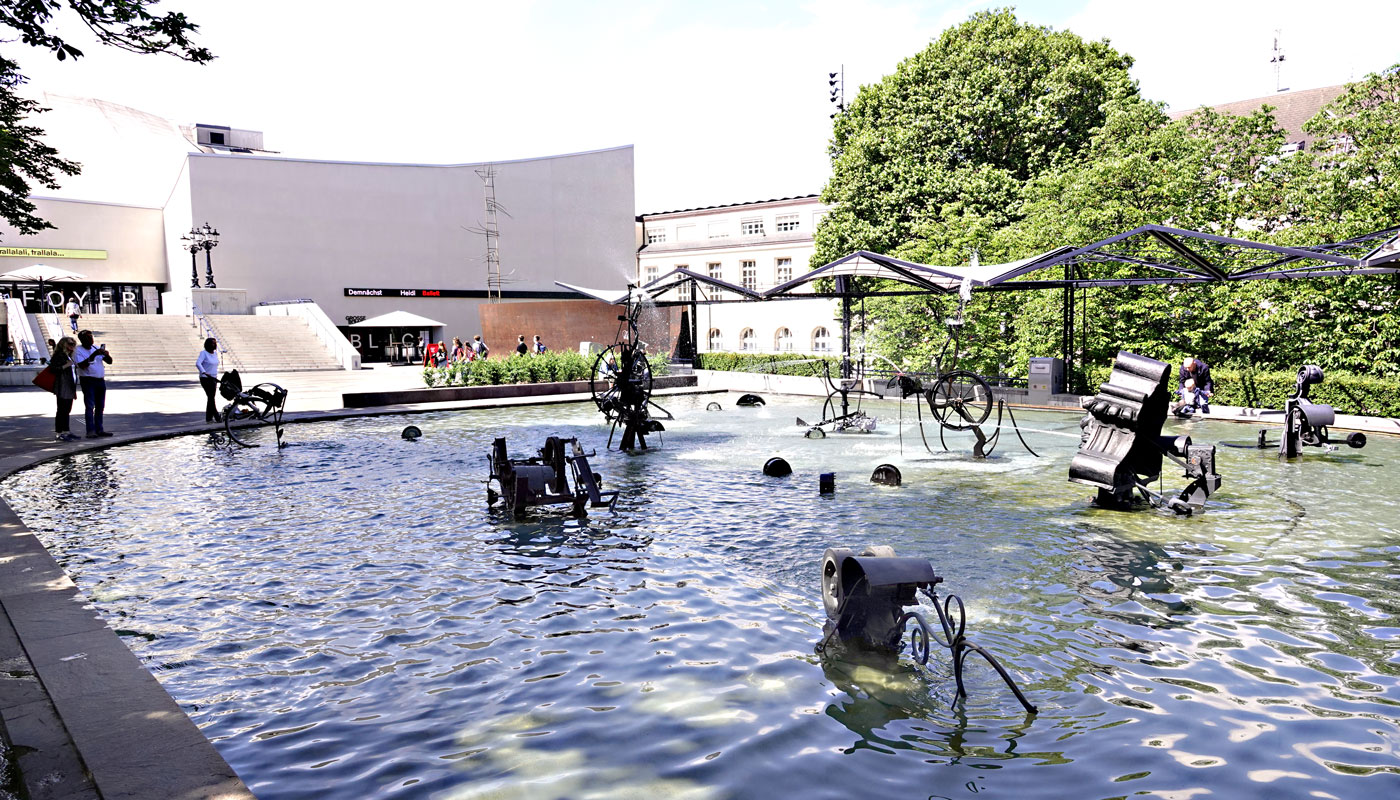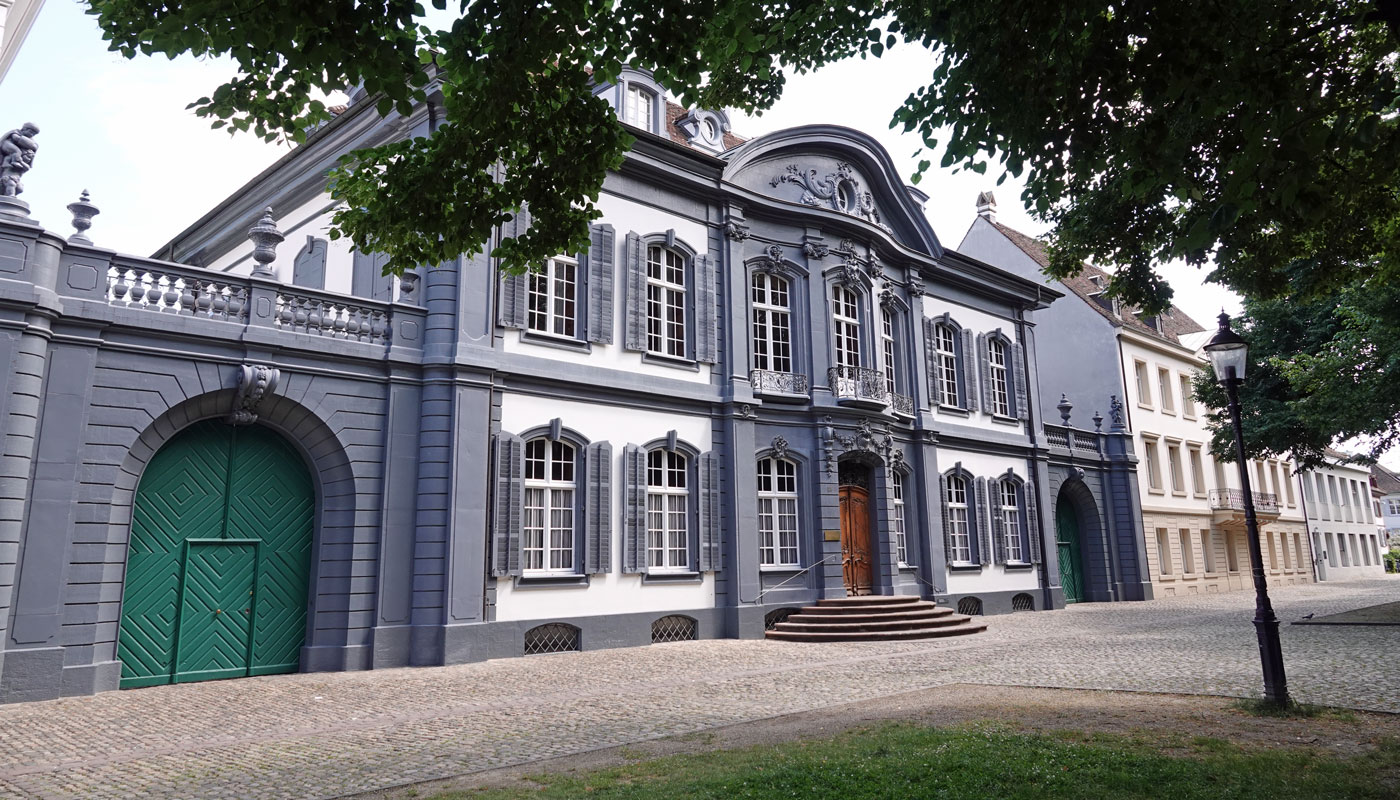Schools Basel: Information about education, further training Basel

1. where is Basel located?
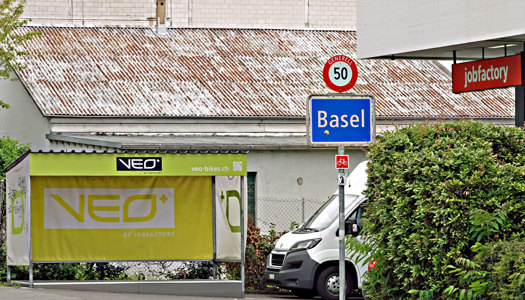
Basel is located in the far north-west of Switzerland in a depression created by the Rhine - not far from the borders with Germany and France. The city lies on both sides of the Rhine, which changes direction at the Rhine bend. The international waterway shapes the cityscape and runs from its mouth under the historic Middle Rhine Bridge to Basel's old town. Due to its central location in Western and Central Europe, Basel became an important hub for transport routes with trade and geographical significance at an early stage. As an important trading center, it is one of the most densely populated areas in Europe with considerable differences in altitude. The city is surrounded by three low to medium mountain ranges. To the west are the French Vosges mountains and to the east the German Black Forest. To the south, southwest and east are the foothills of the Jura mountains. This has an impact on the climate and makes Basel one of the most earthquake-prone areas in Switzerland. The districts of Grossbasel and Kleinbasel are connected by a bridge. Thanks to its central location in the north and good transport links, schools in Basel have a large catchment area.
2. how big is Basel?
With over 170,000 inhabitants, the city of Basel is the third largest city in Switzerland. Population growth began in the 19th century as a result of industrialization. Covering an area of almost 24 km2the town offers the highest quality of life. Despite the dense population, Basel has 320 hectares of green space and 71 hectares of forest. Basel is the second largest business location in Switzerland. On the flatter northern bank of the Rhine, there are large industrial areas with particular relevance in mechanical engineering, metal finishing and textile processing, paper production and processing, and food and beverage production. The city is a world-leading center for the chemical and pharmaceutical industries (Novartis and Hoffmann-La Roche), a world-renowned trade fair center and a major banking center.
3. what is the accessibility by public transport like?
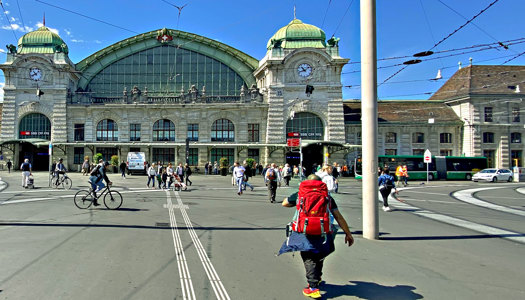
Means of transportation
The city of Basel has three long-distance train stations to make traveling by train easier. The central station in the city center is the sixth largest in Switzerland. From there, national trains run to Zurich, Bern and Lucerne in around an hour, as well as various suburban trains (e.g. to Muttenz) and international trains to Germany, France, Italy, Belgium and the Netherlands. The Badischer Bahnhof station (operated by Deutsche Bahn) in the north-east of the city also provides excellent connections to Germany. In addition, four ports in and around Basel provide access to shipping traffic and the Euro-Airport Basel Mulhouse Freiburg also connects the city to international air traffic (62 destinations, 30 countries). Local public transport is provided by streetcar and bus. With this wide range of public transportation options, students and prospective students can easily reach their desired school in Basel.
4 How do I get to schools in Basel by private transport?
Important road connections from Germany to France run through Basel on the Europastrasse 25 and 35. The A2 leads to Basel from Lucerne and the A3 from Zurich. The city highways A18 and A22 connect the suburbs in the canton of Basel-Landschaft with Basel. Five road bridges connect the two parts of the city of Basel over the Rhine. In Grossbasel, three streets run through the urban area in a concentric ring shape and the city center is car-free. The inner-city road network is restricted to a 30 km/h speed limit. Parking in Basel can be simplified with an app and the city also offers visitor parking cards for people who want to park for half a day or longer. There are around 100,000 parking spaces in the city. There are good conditions for individual and stress-free travel to Basel schools.
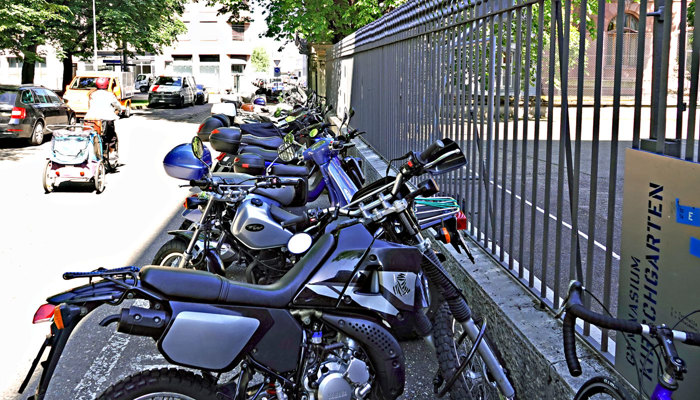
5 "Schools Basel": What kind of schools are there?
Basel is a humanist university city. The University of Basel, founded in 1460, is the oldest in Switzerland and Europe. The city offers a wide range of higher education courses. The University of Basel has over 13,000 students in the faculties of medicine, economics, law, theology, humanities, natural sciences and psychology. The Biozentrum of the University of Basel and the FIT-Zurich Department of Biosystems Science and Engineering also enjoy an excellent international reputation. In addition, the University of Applied Sciences and Arts Northwestern Switzerland (FHNW), the University of Art and Design (HGK), the University of Teacher Education, the University of Social Work, the University of Music and the University of Applied Sciences and Arts for Business provide a sufficient number of well-trained professionals and scientists. There are also schools in Basel in the form of Universities, primary and secondary schools, cantonal schools, grammar schools, vocational schools, private schools, music schools, day schools, adult education centers, sports schools, vocational schools, vocational schools, curative education schools, art schools and language schools. Schools in Basel enable people to develop personally and professionally in a variety of areas.
6. what catering options are available on site?
There are numerous and varied catering options in the vicinity of schools in Basel. Whether in a restaurant, café, canteen or on the street - there is something suitable for everyone. Thanks to various shopping options, it is also possible to buy food on the way to school and eat on site later. Basel specialties range from Basler Suppentopf (ox meat, marrow bones, soup vegetables and tomatoes) or Basler Mehlsuppe to Basler Lummelbraten (beef fillet roast larded with bacon), "Suri Läberli", "Laubfrösche" (cabbage rolls seasoned with meat), "Lachs à la bâloise", Basler Geschnetzeltes, Zwiebelwähe or Fastenwähe. The most famous export hit is Basler Leckerli. It is also worth trying cherry bread cake, "Chriesiwäje" and Baselbieter Kirsch.
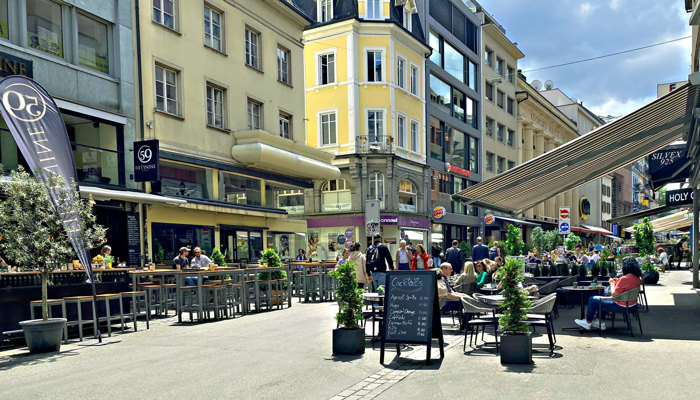
7 "Schule Basel": What happens after school?
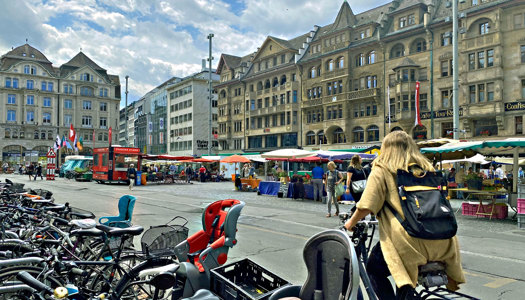
Schools in Basel
The city of Basel is full of exciting contrasts - historic buildings, modern architecture, world-famous museums, a young, dynamic art scene, cosmopolitan flair here, living traditions... You have to experience Basel for yourself. The highlights of the city are Grossbasel, the Rhine promenade and Kleinbasel, Basel Minster on the Minster Hill, the imposing Basel Town Hall ("Roothuus" made of red sandstone) as the seat of the municipal and cantonal government on the market square and the old town itself. As one of the most interesting old towns in Europe, Basel's Old Town offers visitors a successful mix of old and modern architecture, beautiful buildings, interesting museums, the Basel Carnival and plenty of cultural flair. Basel is the cultural capital of Switzerland. The city of Basel offers the following after a visit to the Basel School:
- Special streets, buildings and neighborhoods:
- Clarastrasse (shopping street), Schneidergasse (original stores) and Spalenberg (small stores)
- the local mountain St. Chrischona
- Squares such as Münsterplatz (for exuberant festivities), Marktplatz (town hall and old town houses) and Picasso Square (sculpture L'homme aux bras écartés by Picasso)
- Buildings and structures such as Terrasse Pfalz with a view over the old town, the striking BIS high-rise, Lonza House ("razor" because of its frugal façade) and Les Trois Rois (the oldest hotel in Europe)
- Towers such as the Messeturm (at 105 m and 31 floors, the tallest habitable building in Switzerland), the St. Chrischona TV tower (the tallest free-standing structure in Switzerland) and the Siloturm (Bernoulli silo with two public viewing platforms at 52 meters, used as a venue for cultural events)
- City gates: the Spalentor (richly decorated), the St. Alban Tor and the St. Johanns Tor
- Museums and galleries such as Museum Tinguely, Doll's House Museum, Paul Sacher Foundation or Basel Anatomical Museum (original specimens and wax models of human body parts and organs)
- Opera houses, theaters, cinemas, cultural centers such as Fauteuil and Tabourettli, Knabenkantorei Basel (KKB), Kunsthalle Basel, Musical Theater Basel and Theater Basel
- Basel Trade Fair
- Churches and religious institutions such as Basel Minster, Elisabethenkirche, Pauluskirche or Clarakirche
- Markets such as the market on the market square or the flea market on St. Peter's Square and the lively market hall
- Fountains (around 170 fountains): Fish Market Fountain, Tinguely Fountain, Basilisk Fountain and Fasnacht Fountain
- Gardens and parks such as the Zoological Garden ("Zolli"), Botanical Garden, Old University Garden and Merianpark
- Stadiums such as St. Jakobshalle and St. Jakob-Park (Joggeli)
- Rhine bridges and ferries such as the Dreirosenbrücke (for streetcars, highways and private transport), the Mittlere Brücke (for streetcars and private transport) and Basel's four ferries are known as the "floating Rhine bridges"
- Rivers such as the Birs, Rhine and Wiese, including official Rhine swimming and regular Rhine swimmers with original swimming bags
- Ports: such as Auhafen Muttenz (on the left bank of the Rhine) or Rheinhafen St. Johann (on the left bank of the Rhine)
- Tour of the border triangle connecting Germany and France - three countries in 10 minutes
